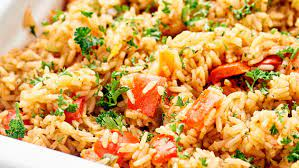Hibiscus Tea - Benefits and Side effects
Hibiscus Tea
This tea is known for its red colour that it takes from the plant it is made from, as well as its tart flavour. The tea is popular around the world and is consumed either hot or as an iced beverage.
The beverage is high in vitamin C and is also thought to provide us with a variety of health benefits. Some of these health benefits are listed below.
- Balances Cholesterol Levels: Eating the right foods can help achieve a healthy a healthy balance between the diverse types of cholesterol. Complementing your diet with Hibiscus Tea can help achieve this. Studies have shown that the tea is effective at not only decreasing the level of bad cholesterols in the blood but also increasing the level of good cholesterols. In other words, drinking Hibiscus tea from time to time can give a boost to health overall.
- Improves Liver Health: Livers can be protected if the right kind of food is eaten. Hibiscus tea helps to keep the liver healthy to forestall some unwelcome symptoms should the liver start to fail.
- Fights Bacteria: Due to the high content of vitamin C in Hibiscus tea, it helps keep the immune system healthy, this helps fight harmful bacteria when the body encounters them. However, should an infection occur, if a bacterium has gotten past the immune system, further steps, such as taking Hibiscus tea because of its antibacterial properties, might help fight the infection.
- Weight Loss: Eating fewer calories than is burnt during exercises helps to reduce stored fat in the body. Complimenting your exercises and lower calorie intake with Hibiscus tea will increase metabolic rate and helps burn stored fat faster.
- Lowers Blood Pressure: Studies have shown that the intake of Hibiscus tea helps reduce blood pressure.
- Antioxidant: Hibiscus tea is a good antioxidant. these are compounds that help protect cells from oxidation and the effect it has on the body. Although studies have been promising but not conclusive.
- Relieves Menstruation Pain: Studies have shown that Hibiscus tea is able to help reduce the severity of this pain and able to reduce other symptoms such as depression and mood swings.
- Aids Digestion: Hibiscus tea is often used to help treat constipation and a range of other digestive system related problems
- Diabetes: Hibiscus tea may help people with type 2 diabetes better control their blood glucose (sugar). Much the current evidence is based on animal research, including a 2013 study published in Pharmacognosy Research in which an injected extract of H. sabdariffa reduced the blood glucose in rats by 12 percent. Interestingly, normal rats injected with the same extract experienced no change in their glucose level.
Possible Side Effects
Hibiscus tea is considered safe with few side effects. Problems, if any, tend to occur with the excessive use of hibiscus supplements. If overused, hibiscus capsules, tinctures, and powder may cause stomach pain, gas, constipation, nausea, painful urination, headache, and ringing in the ears (tinnitus). Even the overconsumption of hibiscus tea may cause transient dizziness and fatigue due to its effect on blood pressure.
Like other herbal teas, hibiscus tea may interfere with certain medications. These include antihypertensive drugs in which the co-administration of hibiscus may cause hypotension (low blood pressure). Similarly, the combination of high-dose hibiscus supplements and diabetes medication could potentially lead to hypoglycaemia (low blood sugar).
Hibiscus also contains phytoestrogen, plant-based compounds that are similar to human estrogen. While the occasional cup of hibiscus tea will unlikely do you any harm if you are on the pill, the regular use of hibiscus can potentially undermine the effectiveness of estrogen-based birth control.
Always speak with your doctor before embarking on any home remedy, including something as innocuous as hibiscus tea. Doing so may help you avoid interactions and side effects.
Like other herbal teas, hibiscus tea may interfere with certain medications. These include antihypertensive drugs in which the co-administration of hibiscus may cause hypotension (low blood pressure). Similarly, the combination of high-dose hibiscus supplements and diabetes medication could potentially lead to hypoglycaemia (low blood sugar).
Hibiscus also contains phytoestrogen, plant-based compounds that are similar to human estrogen. While the occasional cup of hibiscus tea will unlikely do you any harm if you are on the pill, the regular use of hibiscus can potentially undermine the effectiveness of estrogen-based birth control.
Always speak with your doctor before embarking on any home remedy, including something as innocuous as hibiscus tea. Doing so may help you avoid interactions and side effects.



Comments
Post a Comment